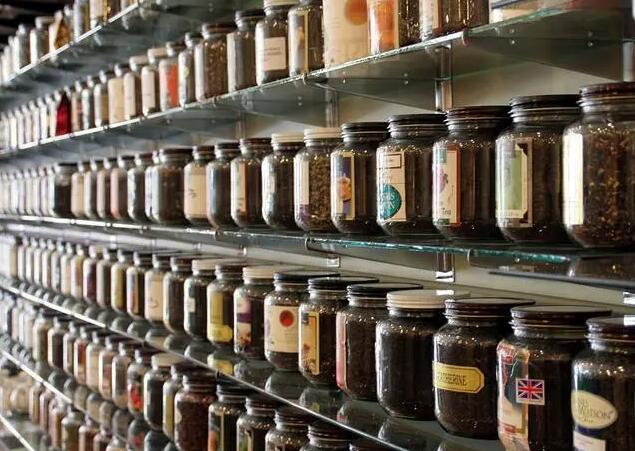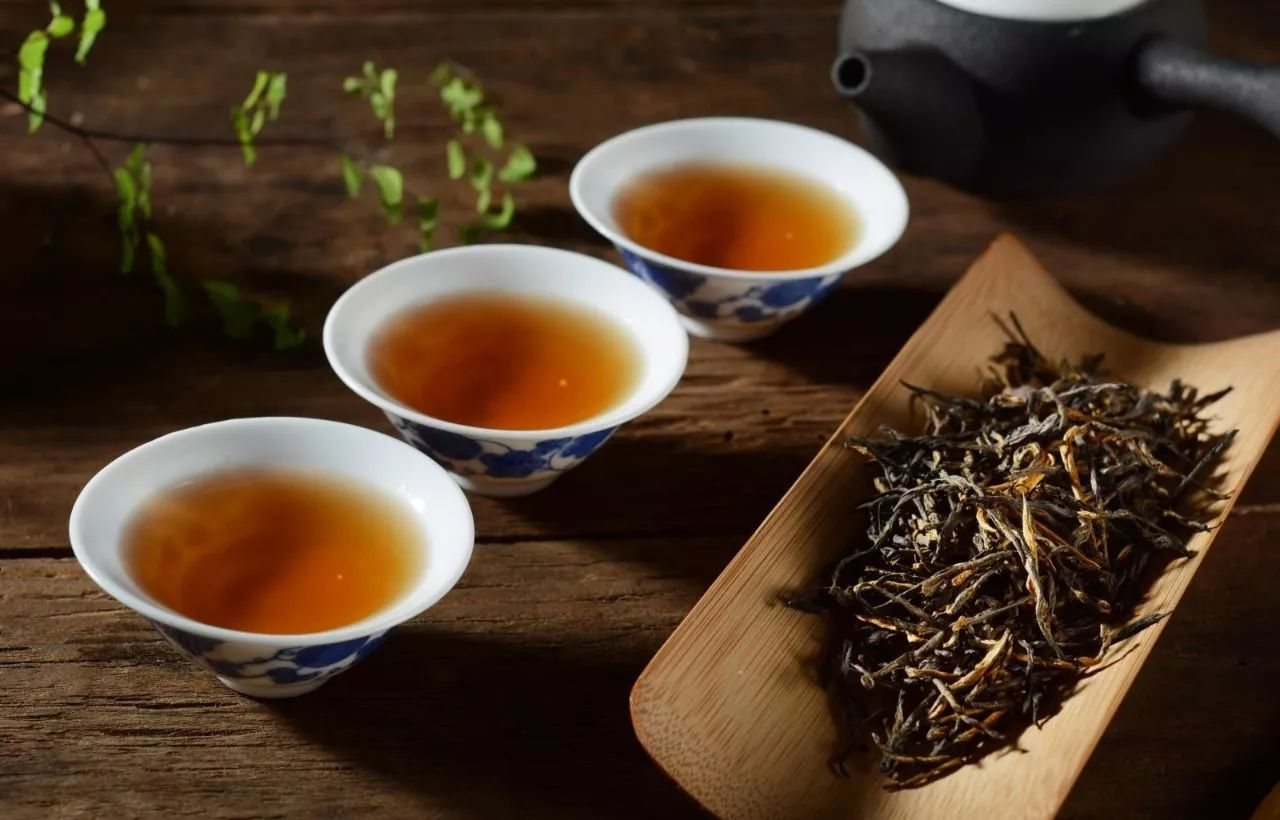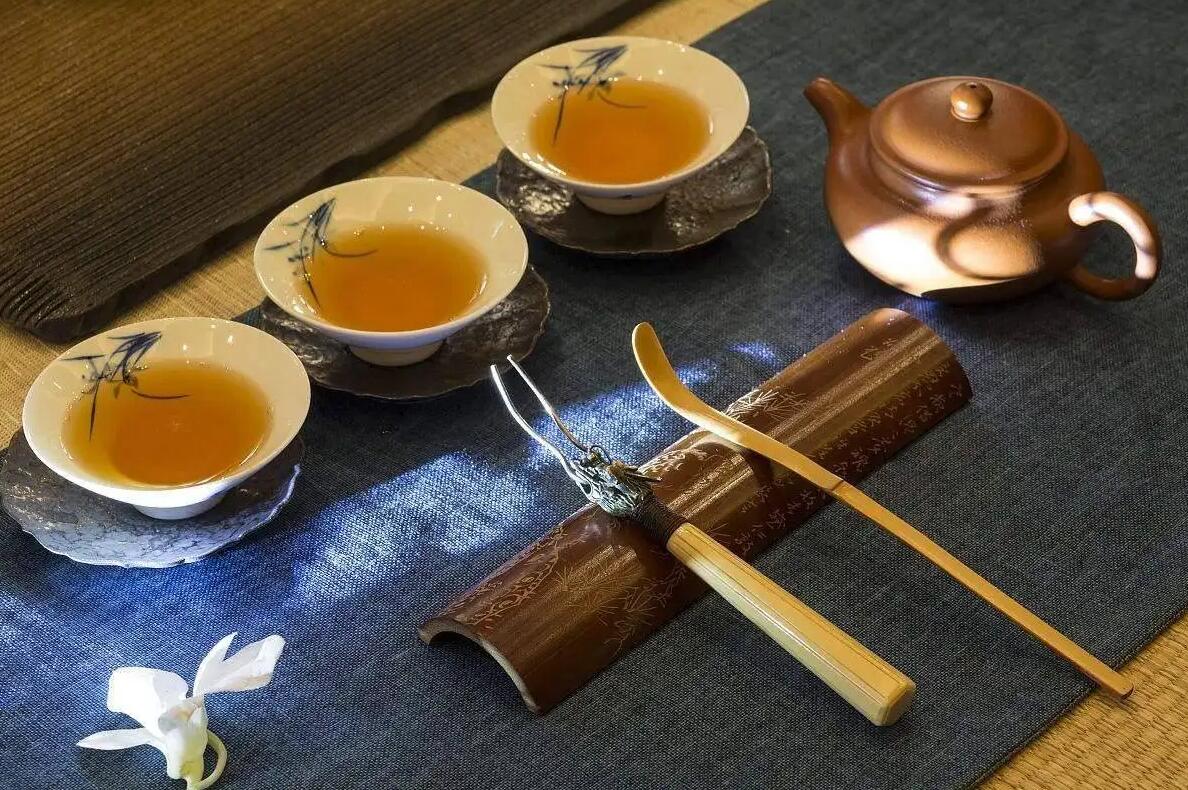After a long period of time since tea has been found by Shennong, tea was just a part of daily life or a way to cure people’s illnesses via our ancestors. After the birth of a great legendary sage, the Saint of tea, Lu Yu, in the Tang Dynasty, tea was changed from being part of the usual chores of life into being a form of culture, art and one of the major principles in life.
Lu Yu (733A.D. ~ 804A.D.) was born in Jingling Fuzhou in Tang Dynasty Hubei Tianmen city) and was named Hongjian. He had fancied tea all of his and had been an expert in The Ceremony, being especially famous for editing the world's first tea monograph - The Classic of Tea and therefore given the title "Saint of Tea".
Lu Yu’s life experiences were rather sad but very legendary. It was recorded in Tianmen County Annals and the Autobiography of Lu Yu that he was born approximately in the Twenty-First year of Kaiyuan years (733 A.D.) and when he was about three years old, he was abandoned near a stone bridge in Jingling city. While the master monk Zhi Ji from Jingling Dragon-Cover Temple heard a sound of wild geese and a little baby crying when he was crossing a small bridge in the early morning, he tracked the sound and found a little baby in the cold shivering and crying under the bridge, with a group of wild geese gathering around him with their wings protecting him from the cold wind. The master was moved and mercifully brought the baby back to the temple and raised him.
The master Zhi Ji gave the abandoned baby the family name Lu, a given name Yu. He also named him Hongjian according to the interpretation of the divination from The Changes after they had lotted. The drawing of the lots says, "Hong (a wild bird) lands on the bank of waters, and its feather could be used for ceremony, which is good luck”.
When Lu Yu grew up, he had been taught about literature, how to read Buddhist scriptures and how to brew tea by the gongfu tea set. He grew up within the temple environment in the company of Buddhas and lamps, but he insisted not to be a monk. When he was nine years old, there was a debate between the master and himself when he was asked to copy and study the Buddhist scriptures, which was recorded in his autobiography as well. The story implies that the master asked him to convert to Buddhism through telling him the principles of the Buddhist scriptures, but Lu Yu defended himself by saying: I am an orphan, without any brother, so if I converted to Buddhism, I wouldn't be allowed to get married and have any child according to the rules for monks, which would be regarded as the have any child according to the rules for monks, v worst by Confucius if I die without an issue. Confucius once said: "There are three unfilial things, dying without an issue is the worst. I would be ridiculed by Confucians if I do so". Lu Yu also openly declared to learn and promote Confucianism.
The Master was so annoyed by Lu Yu's defiant contempt to the Elders and was so angry with him for his unwillingness to convert to Buddhism that he assigned heavy manual tasks like "swept monasteries, deem the toilet, lay bricks to build walls, constructions and feed the animals" to him to force him to repent.
Lu Yu did not yield to those situations. On the contrary, he had a stronger desire for knowledge. He practiced his writing on the back of cattle with bamboo sticks as he did not have any paper. On one occasion he got a copy of Zhangheng's work The South Capital, which he loved so much and had studied tirelessly. But the master feared that his outside activities would be affected by the impact of Confucianism, so he then met Lu Yu in the temple and asked him to plant trees and he sent other monks to monitor him. Lu Yu could not bear this control and torture so that he escaped from the temple when he was 12 and went to work in the theatre as an actor, which was regarded then as the lowest social status job.
Lu Yu stuttered and looked ugly but he was so talented, humorous and wise that he was not only very successful playing the part of a clown but also completed a three-chapter comedy in writing which was named Tease Talk. Very soon, he became a "Dean of Actors"(General Director, nowadays).
The Henan Provincial Governor Li Qiwu was demoted to me position of Governor of Jingling city in the Fifth Tianbao years in the Tang Dynasty (746 A.D.). He reformed administration after his arrival and provided opportunities for qualified people from low social status. He really appreciated Lu Yu's talent and aspirations, and was very sympathetic to Lu Yu’s background and introduced Lu Yu to study within the tutor Zou's Department, which gave Lu Yu the opportunity to have a formal student life. All that significantly influenced Lu Yu's growth to become a well-known scholar in the Tang Dynasty.
In the Eleventh Tianbao years in the Tang Dynasty (752 A.D.), the famous poet Cui Guofu was demoted to the position of Military Offcial in Jingling city. In this year, Lu Yu departed from tutor Zou and left Huomen Hill to return to Jingling city. Joy, how long had it taken them to meet each other at last. Cui Guofu was 46 years older than Lu Yu, but they appreciated each other so much that their age difference, social identity did not matter to them at all. They just enjoyed three years time of getting along drinking tea, talking about literature, joking and enjoying their friendship.
The Thirteenth Tianbao years in the Tang Dynasty (754 A.D.), Lu Yu travelled to the Sichuan area to inspect the Tea matter, where he was presented with a white donkey, book case and other travelling items by Cui Guofu before he set off The friendship between Cui Guofu and Lu Yu was recorded in The Chronicles of the Talents in the Tang Dynasty. The story of Guifu which has amused people for a long time.
In the Fourteenth Tianbao years of the Tang Dynasty (755A.D.), An Lushan raised an army to rebel in Fan Yang, which caused the Guanzhong refugees swarm to the south. Lu Yu also crossed The Yangtze River to the south. He had a full inspection of the tea and natural resources in Hubei, Jiangxi, Jiangsu, Zhejiang and other places along the Yangtze River.
In the spring of the Second Zhide years (757 A.D.), Lu Yu wandered around Wuxi city near the Tai Lake, where he met the Lieutenant Huangfu Ran in Wuxi, the top student who passed the National Official Test. They became very close friends.
Lu Yu later came to Wuxing where he got to know the famous monk poet Jiao Ran in the Tang Dynasty and resided in the Miaoxi Temple for three years with him. Jiaoran is the Tenth generation off spring of Xie Lingyun, who was a famous poet in the Southern period. As a monk at an early age but proficient in Buddhist poetry, Jiao Ran had a great reputation. Lu Yu and Jiao Ran became very good friends because they had a lot in common. In the next thirty years, they had formed a life long friendship and died one after the other.
In the First Shangyuan years (760 A.D.), Lu Yu settled down nearby the Shao River and began his "Book-writing, mind-purifying, extraordinary people meeting and talking all day" door-closing life. During his reclusion period, he continued to travel to the tea mountains and collect information; whilst doing this, he maintained contacts with celebrities, sought bosom friends while studying tea together.
By the first year of the Yongtai years (765 A.D.), Lu Yu's first draft of the book The Classic of Tea had been completed and was so popular that celebrities were competing to have a copy, which brought him a good reputation. The Emperor provided him with positions like “Literature Tutor to The Prince” and "the Dean of the Taichang Temple" which he politely refused to accepted. After being famous, he still travelled around looking for good quality teas well into his old age He had been to Shaoxing, Yuhang, Suzhou, Wuxi, Yixing, Jiangsu, Nanjing, Shangrao, Fuzhou and many other places. Ultimately, he returned to Huzhou, In the late Zhenyuan years (804 A.D.), he reached the end of his life and quietly passed away, leaving a glorious book - the Classic of Tea.



